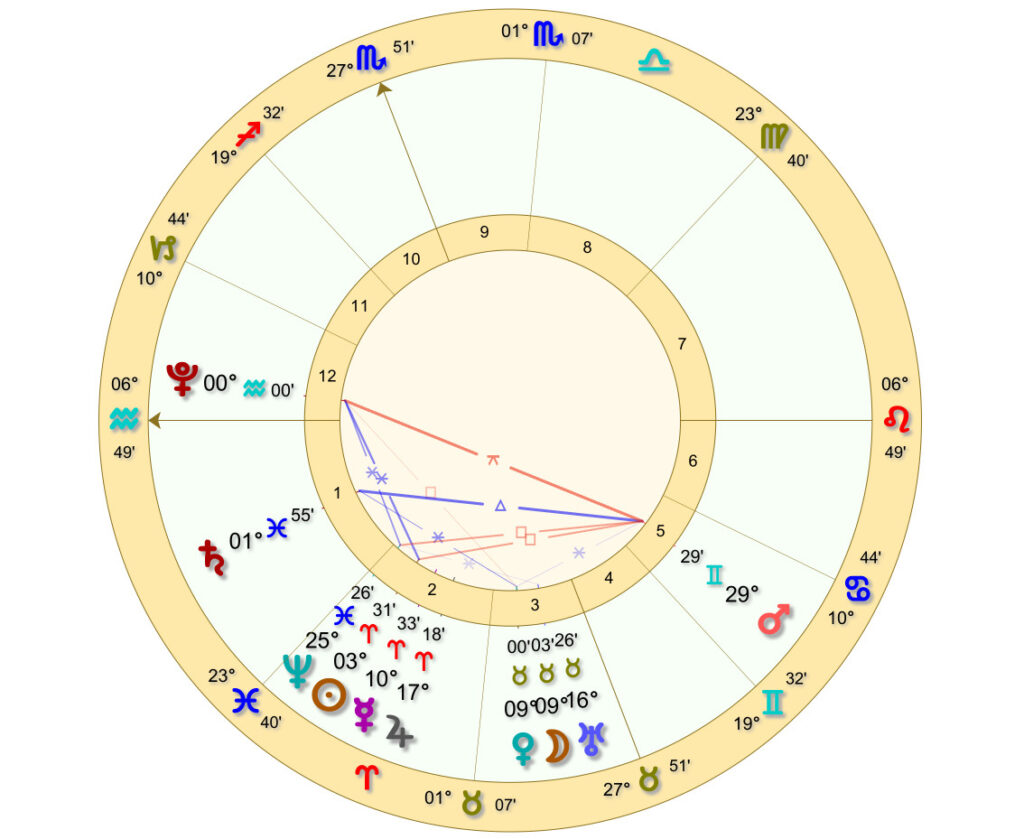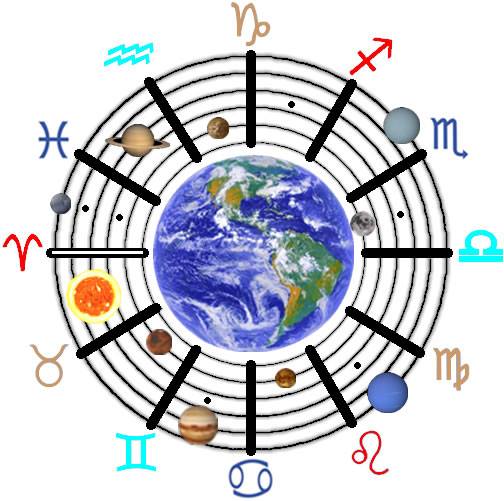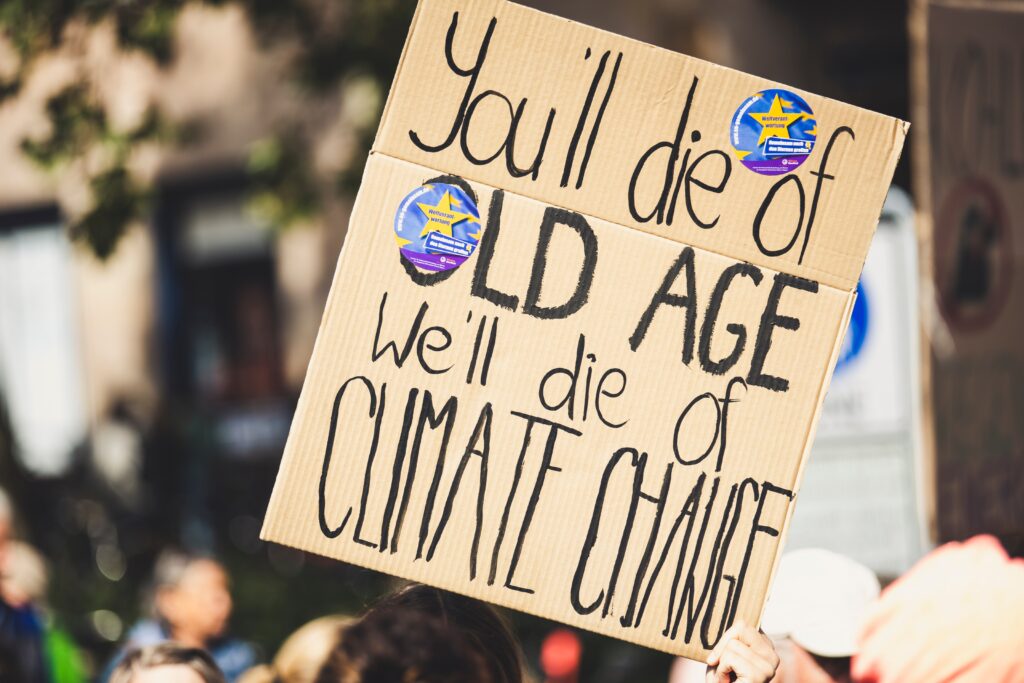Could it be? Is Pluto finally in Aquarius? For the first time in 225 years, give or take?
Pluto has entered the sign of Aquarius after transiting Capricorn for the last 15 years. Pluto will retrograde back into Capricorn in June of 2023 and then re-enter Aquarius in February of 2024, then it will retrograde one more time into Capricorn in late 2024. On November 20, 2024, Pluto will be back in Aquarius where it will remain until roughly 2043. Pluto’s cycle is approx. 244 years, and it spends about 20 years in the sign of Aquarius. Pluto was discovered in 1930 when it was transiting the sign of Cancer at roughly 17 degrees. We have only been aware of Pluto’s existence for a little under a century, not even half of a Pluto cycle. However, in the last 100 years, Pluto has transited more than half of the zodiac due to its highly eccentric orbit. It’s been slowly decreasing its relatively rapid pace and will take another 150 years or so to complete the other half of the zodiac.
Game Change
Pluto’s’ role in astrology is the proverbial Game Changer, whether we’re looking at our natal charts or following Pluto’s’ course throughout history. Pluto represents death and regeneration and is often likened to the death card in tarot, and the grim reaper in ancient folklore. And like the death card, it doesn’t denote a literal death, but is often present when deaths occur. The key to this metaphorical death is in understanding the two distinct types of change. Mercury represents a binary on-off kind of change in which we simply alternate between mundane modes or move back and forth between two locations. Pluto represents the end of something to which we have grown accustomed and the beginning of a new mode of our existence.
We’re clearly moving and changing as we navigate our daily schedules and run our errands around town. This is Mercury swiftly transiting the zodiac and our charts sweeping us along from one transit to the next. Pluto moves much slower and sweeps with a much bigger broom, changing our lives for better or worse but never to be the same. When Pluto makes a major shift in our personal transits, we may be doing our last round of errands as we prepare to move across country to start a whole new life. Pluto is also where the personal and the historical often intersect and we may play a pivotal role in an historic event, or the event may play a role in our life trajectory.
Historically, Pluto represents an authority that can check those who may be abusing their positions and privileges, and this is never truer than when Pluto transits Capricorn. As Pluto transits each sign, this house-cleaning process moves from one life theme to another. In 2008, Pluto entered Capricorn after 12 years of transiting the sign of Sagittarius. The period from 1995-2008 when Pluto was in Sagittarius was characterized by religious fanaticism, foreign and domestic terrorism, and a global holy war. As Pluto was entering Capricorn, I anticipated an era marked by financial meltdowns and institutional corruption. Those in power who saw themselves as uncheckable would be checked by a higher power or force beyond their control.
Power to the People
When I speak of a higher power, I might mean a type of divine intervention if Pluto were entering the sign of Pisces. But in the case of Aquarius, that higher power is the power of the people united under a new contract for a more equal and just world. It’s hard to believe that a society can go from a period of collective gaslighting to a new age of enlightenment and rational thinking but that is precisely what has occurred throughout history each time Pluto has entered the sign of Aquarius. There are countless hierarchies from the Royal British Crown to the petty pecking orders at our places of work, none of which could withstand the scrutiny of a rational mind.
It is precisely because those in power become increasingly despotic and unjust, pushing the limits of rational thought, that people have overthrown these regimes of intimidation and replaced them with democratic processes. This is a dilemma in which the people must forge new institutions out of the ruins of the old without setting the same course in motion all over again. The crafters of the US Constitution faced this challenge, and many were determined to set up safeguards to prevent the newly formed nation from turning back into a despotic regime. But what precautions can prevent the wheel from slowly turning through the ages?
Generational Shift
The Iroquois tribe believed in the 7th generation principle and considered how policy decisions would affect each following generation. A Pluto cycle is closer to 12 generations, each one adopting a very different set of values that seem to progress over time. Each generation seeks to instill the values they hold dear to guarantee that they can be passed down to every generation to come. But how can one generation be sure that those values won’t completely fall out of favor when they’re no longer around to defend them? Even if we don’t follow a religion or spiritual tradition, our values are sacrosanct, and we feel compelled to pass them down to our children and grandchildren.
In 12 generations, there may be periods in which 2 or 3 consecutive generations preserve a certain set of values for the better part of a century. But despite our nostalgic rear-view mirror approach to our values and traditions, they have consistently changed with each new generation modifying and tweaking them to be more in tune with the times. Just as some generations have dutifully preserved the traditions of the generations before them, others have been willing to start all over with an entirely new set of values. There has never been a moment in history in which a clean break could be made between generations. Apart from a “Lord of the Flies” scenario, the older generations have always maintained a strong influence, if not a monopoly on policy decisions.
Values and Traditions
The Pluto cycle represents a full circle in our collective values over the course of about 250 years and roughly 12 generations. It would take multiple full-length textbooks to cover the entire cycle and how it corresponds to events in history. This is a road so long that we could never travel the whole thing in our lifetimes, no matter how fast or far we go. But we can focus on the road ahead and some of the recent turns that brought us here and hopefully we can find out where we are and just where we’re heading. At any point on this road, you’ll find travelers young and old, spanning 3 or 4 generations. So, it’s important to look at those generations that once led us forward but are now trying to hold us back.
On a wheel so large in scope it can seem as though we’re moving in a definite direction, a very slight curve can be mistaken for a straight line. And when we feel as though we’re moving in the right direction we may fail to correct for this curvature and continue moving on our straight path while the crowd veers off around the bend. If we separated life into 3 simple phases, in the first phase we would be seeking direction, in the second phase we would discover our direction, and in the third phase we would realize that the world was turning as we continued moving straight ahead. The older and more stubborn we become the more we feel like a lonely satellite lost in space, helplessly watching the world turn from a distance.
It’s natural to want to remain relevant and not simply fade away into an ineffable obscurity. One way to do this is to change with the times, adopt and adapt to new technologies, and listen to the will of the people. Another way is to attempt to suppress any new ideas and stubbornly force policy decisions from the top down. Our modern moderate politics can be misleading, and a political agenda can be a confusing collage of old and new values. From Neo-Liberals to Fiscal Conservatives, we’re never quite sure who is leaning right and who is leaning left. It’s no wonder that so many people run to the fringes looking for an alternative to the what the mainstream is offering.
Are you ready?
So, here we are, Pluto is at 0 degrees Aquarius and 0 minutes. The last time humanity was sitting on this threshold we didn’t know it. Yet, we danced along as if we could hear the drum beat and the crescendo of inspiring chords churning out from the heavens, providing a soundtrack for an Aquarian revolution to sweep through the land crumbling outmoded institutions and returning power to the people. Our values are rapidly changing, and our traditions will follow in kind. Pluto is slowing

down, and its’ transits are getting longer but Pluto’s’ transit of Aquarius from 2023-2043 will usher in an advanced era of exciting new ideas and technologies. In some ways, things will slow down but we’ll also be seeing great evolutionary leaps that change our lives forever.
The Aquarian Age Series continues…
In the Aquarian Age Blog and Podcast series, we’ll examine Pluto’s transit through Aquarius from 1777 to 1797 and how it corresponded with the American, French, and Haitian revolutions. We’ll also look back to the previous transit of Pluto through Aquarius from 1532 to 1552 and how it corresponded with Henry VIIIs’ challenge to the Pope and the fall of the Incan empire.
Where do we go from here?

